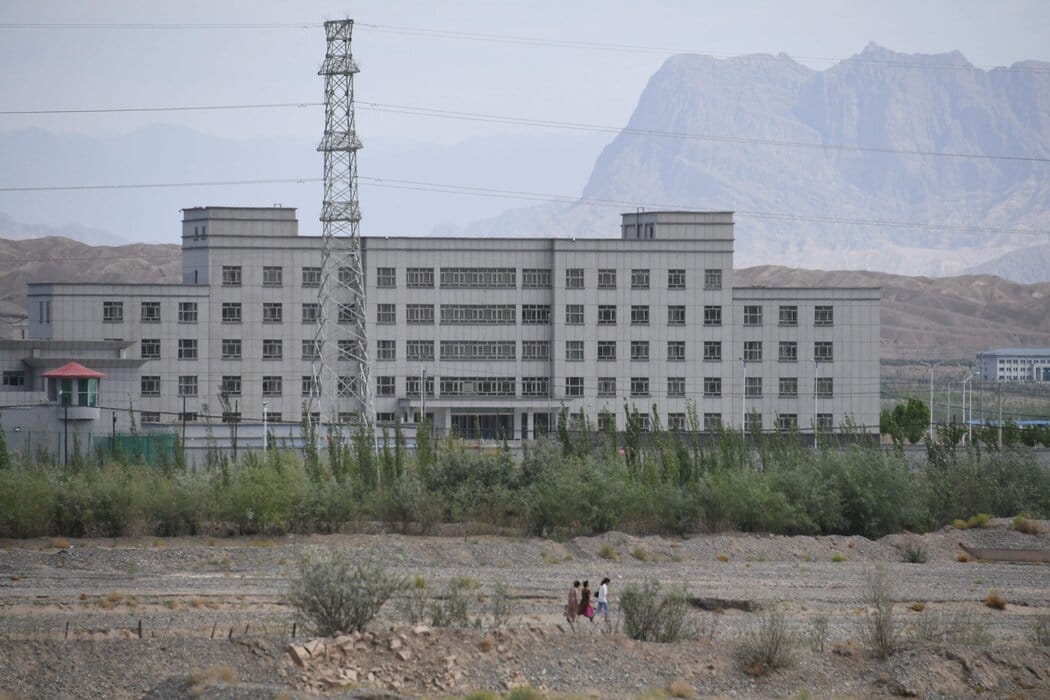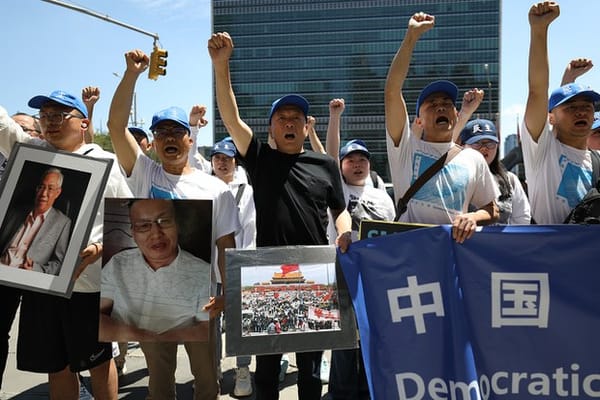China commits genocide against Uighurs

China's government has committed genocide and crimes against humanity with its massive crackdown on Uyghurs and other predominantly Muslim minorities in its northwestern Xinjiang region, including the use of internment camps and forced sterilizations, the State Department announced on Tuesday. The move, made by the Trump administration on its last day in office, is expected to be its final action against China, and how it punishes Beijing for what many see as its worst human rights abuses in decades. The result of years of debate. Relations between the two countries have deteriorated over the past four years, and the new findings add to existing tensions. Foreign policy officials and experts from all parties in the United States say that China will be the biggest challenge no matter who is in power in the next few years or decades. “I believe genocide is ongoing and we are witnessing a systematic attempt by the Chinese party-state to eliminate the Uyghur people,” Secretary of State Mike Pompeo said in a statement, which added that Chinese officials “are involved in targeting vulnerable people.” the forced assimilation and eventual elimination of ethnic and religious minorities.” The designation of the atrocity is a rare move by the State Department and could lead to more U.S. sanctions on China under the new Biden administration. President-elect Joe Biden said through a spokesman last year that Beijing's policies amounted to "genocide." Other countries or international institutions may also follow the United States' lead and formally criticize China's treatment of minority Muslims and take punitive measures. The characterization also prompted some scrutiny within the State Department. This investigation result is the most severe condemnation of China's Xinjiang policy in the history of the US government. According to international conventions, genocide is “the deliberate destruction in whole or in part of a national, ethnic, racial or religious group.” Pompeo, State Department lawyers and other officials debated that characterization for months, but the matter gained urgency in the final days of the Trump administration. As with most China policy, there has long been a divide between administration officials over Xinjiang: Pompeo and other national security aides have advocated tough measures against Beijing, while President Trump and top economic advisers have dismissed such concerns . The Chinese government has rejected previous accusations of genocide and other human rights abuses in Xinjiang. At a news conference in Beijing last week, officials condemned such accusations made by U.S. politicians and groups. On Tuesday evening, the Chinese Embassy in Washington issued a lengthy statement saying that "the so-called 'genocide' is pure nonsense," adding that the overall population of ethnic minorities in Xinjiang, including Uyghurs, grew from 2010 to 2018. The statement also said that the Xinjiang policy is part of the fight against "terrorism and extremism" and that "these measures are in line with the reality of Xinjiang and have achieved remarkable results." In an effort to deflect criticism from U.S. officials, Chinese officials have also highlighted some of the Trump administration's major failures in governance, including the more than 400,000 deaths caused by the coronavirus pandemic and the mobs Trump incited. The deadly attack on the Capitol.
Some Uyghurs expressed gratitude for the decision. "Today's characterization of genocide is a disservice to the victims and survivors of Chinese government internment camps - like my brother Ekpar and millions of Uyghurs," said Washington attorney Rayhan Asat. People - a sign of recognition of long-suffering." Her brother is imprisoned in Xinjiang. “This is the starting point for justice, freedom and accountability for these atrocities,” said Virginia resident Ziba Murat, whose mother Gulshan Abbas was detained. “This gives us hope that those who seek to downplay the devastation being done to our people can no longer hide their complicity.” The latest condemnation from Washington follows a declaration that China’s actions in Xinjiang amount to genocide The strongest statement from a government entity came from a Canadian parliamentary subcommittee. Last October, the subcommittee concluded that China was responsible for the crime. Pompeo and senior State Department officials made the decision days before Biden was inaugurated. The findings could complicate his administration's dealings with Beijing, but they also provide leverage. Antony J. Blinken, Biden’s nominee for secretary of state, said during his Senate confirmation hearing on Tuesday that he agreed with the genocide finding and condemned “internment camps” in Xinjiang. He also asserted that China "poses the greatest challenge of all countries to the United States." In the days leading up to the decision, State Department officials debated whether China's actions in Xinjiang met the criteria of genocide or the lower category of crimes against humanity, according to U.S. officials familiar with the matter. Pompeo decided to use both counts. A U.S. official says the use of forced sterilization, birth control and family separation to undermine Uyghur identity is the strongest basis for the genocide label.
Several State Department officials said the decision stemmed from efforts to achieve policy goals. They said they hoped the move would spur other countries to take a tougher public stance against China on this and other issues. Some officials opposed to the action noted that the State Department never made a determination despite strong evidence that the Myanmar government committed genocide against Rohingya Muslims. In 2017, the State Department said Myanmar had engaged in "ethnic cleansing." Biden has been critical of China's human rights record during his decades in office, and he has used strong language to describe China's repressive policies. Last August, he issued a statement calling China's actions "genocide" and urged the president to do the same. He insisted that Trump "must also apologize for condoning this horrific behavior against the Uyghurs." Biden was referring to an account by Trump’s former national security adviser, John R. Bolton, who revealed in his memoirs that the president told Chinese leader Xi Jinping at a 2019 summit to let go of the To build internment camps in Xinjiang, “Trump believes this is the right thing to do,” Bolton wrote, adding that Trump made similar remarks during his visit to China in 2017. Bolton and other aides said Trump has repeatedly ignored their recommendations to impose sanctions on Xinjiang to avoid damaging trade talks with China. Trump has expressed little concern for human rights and has publicly called Xi a friend for much of his term. For years, Democratic and Republican members of Congress have pressed the administration to take a more aggressive stance. An annual report released Thursday by the Congressional-Executive Commission on China said there was evidence that "crimes against humanity, possibly even genocide," were occurring in Xinjiang. The report emphasizes that budget legislation passed in December requires the U.S. government to determine within 90 days whether China has committed atrocities in the region.
Some lawmakers pushed the Trump administration to impose sanctions on China at the last minute. New Jersey Democratic Senator Robert Menendez, chairman of the Senate Foreign Relations Committee, said on Tuesday that China committed genocide, but stressed that "this is action that the Trump administration should have taken years ago and should not have been As it is about to leave office - it should not, as Ambassador Bolton said, give the green light to concentration camps in China." In October 2019, the Trump administration blacklisted police departments in Xinjiang and several Chinese companies and has since issued other sanctions, including those targeting senior Communist Party officials. On Wednesday, the government announced a ban on the import of cotton and tomato products from the region. The State Department's ruling further underscores how Xinjiang has become a core human rights issue for the United States and its allies. For decades, China has exercised repressive control over Xinjiang's ethnic minorities, who make up more than half of the region's 25 million people. For the largest ethnic groups, their Islamic religion and Turkic language and culture set them apart from China's Han majority. Tensions began to spiral sharply in 2009, when Uighurs took part in ethnic riots in the Xinjiang capital Urumqi that left about 200 Han people dead, following earlier tensions and violence. Chinese security forces began a comprehensive crackdown. In the following years, there were attacks and more repression in Uighur towns and cities outside Xinjiang.
Since 2017, at Xi Jinping’s urging, Xinjiang’s leaders have begun or intensified policies aimed at converting Uyghurs, Kazakhs and other ethnic minorities into loyal, largely secular supporters of the Communist Party. The U.S. State Department’s decision document stated that the Chinese government had committed “crimes against humanity” “since at least March 2017.” Security forces have sent hundreds of thousands of Uighurs and Kazakhs — some estimate a million or more — into indoctrination camps to instill loyalty to the Communist Party and break faith in Islam. The Chinese government has always defended the camps as well-intentioned vocational training schools and disputed estimates of the number of prisoners but has never given its own figures. Former prisoners and their families who left China described poor living conditions, brutal indoctrination and abuse by guards. The expanding indoctrination camps have drawn growing international condemnation, including from human rights experts advising the United Nations, the United States and other countries. In 2017, journalists and academics began writing about these camps and the sophisticated high-tech surveillance system in Xinjiang long before foreign governments began discussing the issue. However, these indoctrination camps are only part of the CCP’s campaign to radically transform Uyghurs, Kazakhs, and other ethnic minorities. Other measures include labor relocation, educational and cultural policies, and population control. Under Xi Jinping, Xinjiang has expanded and intensified its long-term program to relocate Uighurs and Kazakhs from rural areas to work in factories, cities and commercial agriculture. The Chinese government says these job transfers are entirely voluntary and have brought prosperity to poor people. But some programs set quotas for the number of people who can be moved to work and restrict those recruited from choosing or leaving jobs—a hallmark of forced labor. Schools have largely eliminated Uyghur language classes, forcing students to study in Chinese. Uyghur scholars seeking to protect and promote their culture have been arrested, and Uyghur-language publishing has been severely restricted. Officials forced children into boarding schools and separated them from their parents. Adrian Zenz, an American researcher who focuses on Xinjiang, said in a report last year that some programs in Xinjiang also try to curb the growth of the Uyghur population by forcing women to undergo permanent sterilization or implant birth control devices. Chinese researchers have questioned the numbers and conclusions in Adrian Zenz's report but do not dispute the government's desire to reduce Uyghur population growth. This month, the Chinese Embassy in Washington said on Twitter that Uyghur women had been "liberated" and were "no longer fertility machines." Twitter later removed the comment and told a reporter that the post violated its rules against "dehumanization."



